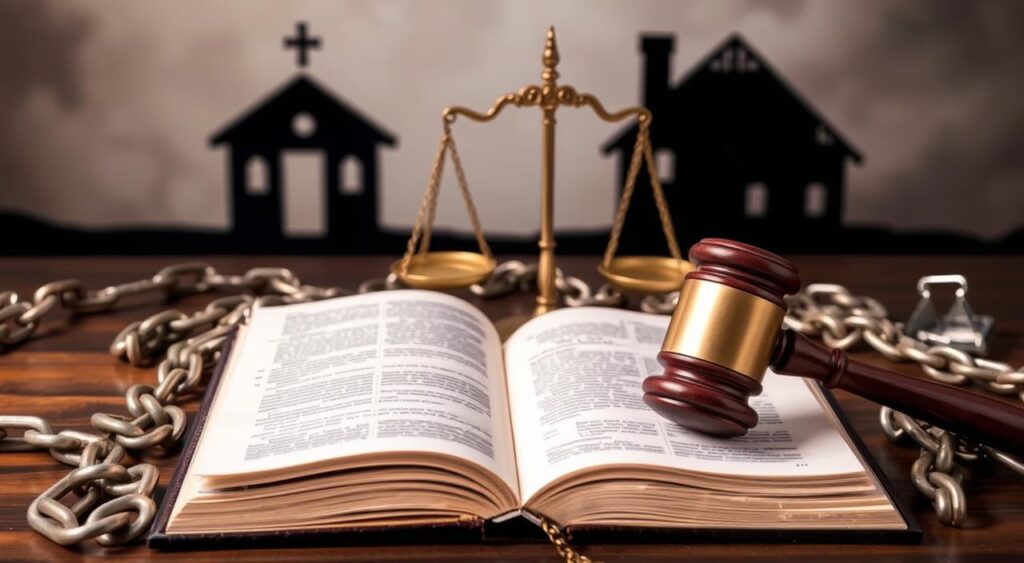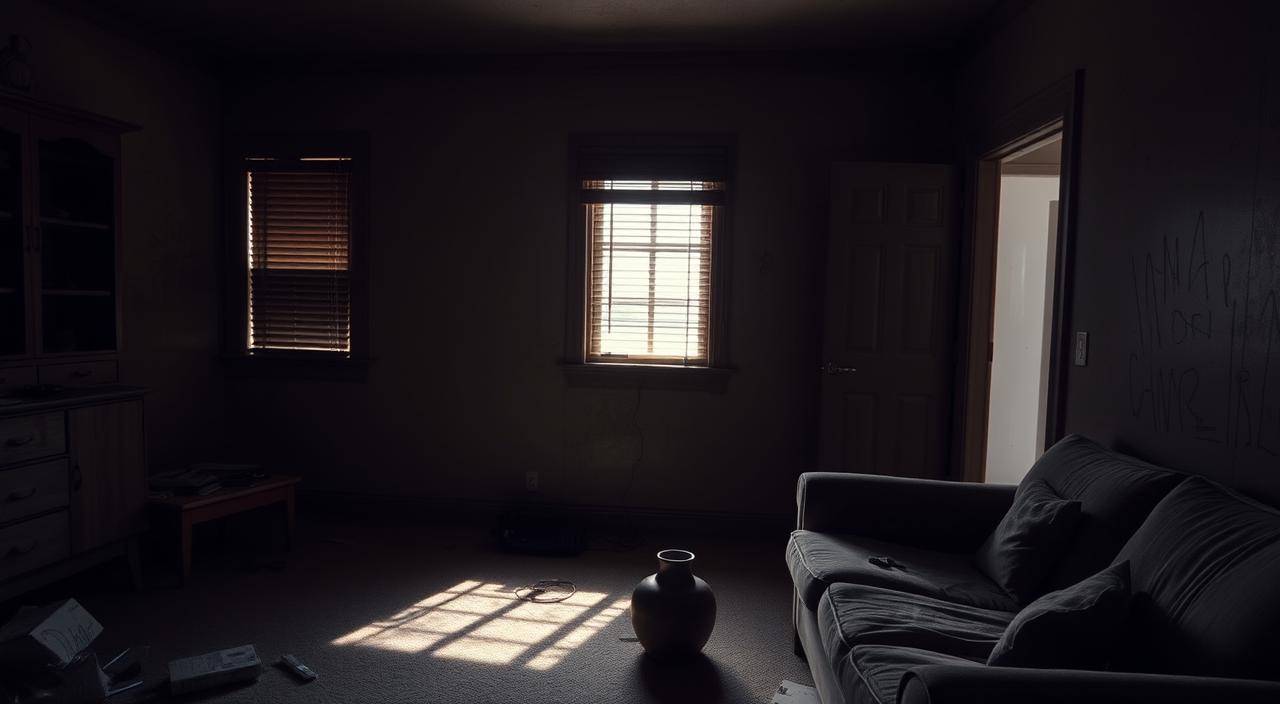My heart aches for women trapped in emotional abuse. These toxic relationships leave deep scars, hurting their self-worth and making them feel alone. If your sister is in this situation, know you’re not alone. We can help her find her way back to the world. Learn How To help sister out of an isolated husband?
Emotional abuse can lead to physical harm and is very sneaky1. It makes someone feel worthless, ashamed, or scared1. Abusers hide their true nature, making it hard for others to believe the victim1. This makes your sister feel trapped and hopeless.
Key Takeaways
- Emotional abuse can be subtle but deeply damaging, leaving victims feeling isolated and ashamed.
- Abusers often create a misleading façade, making it hard for others to believe the victim’s experiences.
- Supporting a loved one in an abusive relationship requires empathy, validation, and a focus on her safety and autonomy.
- Providing resources and solutions, while respecting her decisions, can help empower your sister to break free.
- Maintaining healthy boundaries and self-care is crucial for both you and your sister during this challenging time.
Understanding Emotional Abuse
Emotional abuse is a sneaky form of domestic violence that harms a person’s mind and feelings. It uses non-physical ways to make someone feel small, scared, or worthless2.
What is Emotional Abuse?
It can show up as insults, put-downs, or threats. These actions make someone feel bad about themselves or feel trapped. This abuse is hard to spot because it doesn’t hurt physically. Yet, it can deeply hurt a person’s self-worth and freedom3.
Signs of Emotional Abuse
- Isolating the victim from friends and family
- Verbal humiliation and constant criticism
- Gaslighting or denying the victim’s reality
- Monitoring the victim’s activities and communication
- Exhibiting jealousy and using guilt to manipulate the victim
- Demanding constant access to the victim’s personal information, such as passwords and social media accounts
These behaviors show signs of control and isolation, common in emotional abuse3. It’s key to spot these signs and see how much emotional abuse can hurt a person’s life and self-image3.
“Emotional abuse is like brain damage. It’s invisible, but over time it destroys the victim’s sense of self-worth and leaves deep scars.”
Listening Without Judgment
When your sister talks about her experiences, it’s key to listen actively, with empathy, and without judgment4. Emotional abuse is about controlling someone, so we must make a safe space for her to share. This means no criticism or unwanted advice.
As supportive siblings, we should listen well, repeat back what we’ve heard, and not guess about her choices5. Women often look for different things in their sisters’ partners than in their own. By being open and non-judgmental, we can understand your sister better and support her.
Introducing a new partner can change family culture a lot5. Carla Manly, a clinical psychologist, says we should listen and understand without our own biases4. Emotional abuse can be verbal, constant criticism, or making someone feel alone. We must watch for these signs as we support your sister.
By being active listeners, empathetic, and non-judgmental, we help your sister feel heard and empowered4. Emotional abuse is complex, but with patience, understanding, and supportive communication, we can guide her towards a better life.
| Harmful Statements to Avoid | Supportive Language to Use |
|---|---|
| “Why don’t you just leave?” | “I’m here to listen and support you.” |
| “You should have known better.” | “Your safety and well-being are my priority.” |
| “If you stay, it’s your own fault.” | “I believe you and I’m here to help in any way I can.” |
Believing and Validating Her Experience
When your sister shares her story of domestic or emotional abuse, it’s key to believe and validate her6. Abusers often hide their true nature, making it hard for others to see the truth. But we must not doubt or downplay what she says7.
Victims of abuse have long faced pressure to stay silent or admit false accusations. This has led to severe outcomes.
By believing your sister, you make her feel heard and supported6. Emotional invalidation can cause distance and constant arguments in relationships. Learning to validate each other’s feelings can make a relationship feel more accepted and understood6.
It’s common for partners to unintentionally invalidate each other’s feelings6. This can make a partner feel unimportant or diminished, leading to hostility or withdrawal.
Remind your sister that the abuse is not her fault and that you believe her.7 Many Christian women have lost a lot for speaking out against abuse. Avoid saying anything that makes her feel responsible for her partner’s actions.
By listening with compassion and validating your sister’s experiences, you can help her feel supported8. Psychologist Jennifer Veilleux suggests using the “thinking threshold” to manage tough emotions8. Techniques like splashing your face with ice water or getting a hug can also help regulate feelings8.
It’s important to learn to self-validate. Relying too much on others for validation can affect your self-worth.
Remember, your role is to be a supportive, non-judgmental listener. By believing and validating your sister’s experiences, you empower her to take action against the abuse and regain control of her life.
Avoiding Victim-Blaming Language
When someone shares they’ve been abused, it’s key to not blame them. Certain words can make it seem like the victim is at fault. By choosing our words carefully, we can help the survivor feel supported and empowered9.
Harmful Statements to Avoid
- Questioning how the victim contributed to their partner’s infidelity or misconduct9
- Implying that the victim could have prevented the abuse by being more available9
- Suggesting that the victim should forgive the abuser9
- Dismissing the victim’s experience with statements like “That doesn’t sound like him”9
Supportive Language to Use
We should speak in a way that acknowledges the abuse and supports the victim. Saying “You don’t deserve this treatment” and “I believe you and I’m here for you” can be very helpful9.
It’s vital to avoid blaming the victim to help them heal. By choosing our words wisely, we can support them in breaking free from abuse9.

Remember, the victim is never to blame for the abuse9. They often feel guilty for what happened. By using supportive language, we can help them see they are not to blame9.
Our job is to listen, believe, and offer a safe space for them to share9. By not blaming and being compassionate, we can be a strong support in their healing journey9.
Focusing on Unhealthy Behaviors
When talking to your sister about her husband, don’t call it “abusive” right away. Instead, talk about the specific actions she’s seeing, like constant watching, threats, or mean words10. This way, she can see the unhealthy parts without feeling attacked.
Toxic family situations often include controlling behavior, no love or respect, and substance use10. These actions can make a family feel unhealthy. People might feel bad about themselves after being around family10.
Enmeshed families, where boundaries are missing, can confuse roles and expectations11. This can stop kids from growing up and finding themselves11. To deal with these issues, setting boundaries, staying detached, and saying no can help10.
By focusing on the specific behaviors and patterns of control, you can help your sister see the unhealthy parts without calling it abusive. This method helps her understand and tackle the problems she faces, without feeling defensive or misunderstood.
Offering Solutions and Resources
When supporting a loved one experiencing domestic abuse, it’s crucial to provide them with information about the domestic violence resources available12. Domestic abuse is a pattern of behaviors within an intimate or family relationship. It makes it hard for the victim to control their own life or leave. These behaviors can be controlling, coercive, threatening, degrading, or violent12.
Coercive control involves a pattern of acts such as assault, threats, humiliation, and intimidation. It is used to harm the victim, creating a context of fear and control. This makes it hard to end the relationship12.
Local and National Support Services
Domestic violence victims often face significant barriers to seeking help. These include financial constraints, emotional struggles, fear, and possible threats from the abuser12. To support your sister, research and provide information about local and national domestic violence hotlines, counseling services, and legal assistance12.
Offer to help her access these resources, but ultimately allow her to make the decisions that feel right for her12. Emphasize that you will support her no matter what path she chooses.
Some resources to consider include:
- National Domestic Violence Hotline: 1-800-799-7233
- Local domestic violence shelter or support services
- Legal aid organizations that provide assistance with domestic violence cases
- Support groups for survivors of domestic abuse
Remember, your sister’s safety and well-being should be the top priority12. Encourage her to reach out to expert support services like the National Domestic Violence Hotline or local domestic abuse services. They can provide her with the necessary resources and information to make safe decisions12. If there is a sense of immediate physical danger, involving the authorities may be necessary to ensure the safety of your sister and those around her12.

By offering solutions and connecting your sister with the appropriate resources, you can empower her to take the necessary steps to address the abuse and regain control of her life12. Remember, the responsibility for the abuse lies solely with the abuser. Your sister should never be blamed or made to feel responsible for the situation12.
Respecting Her Autonomy
Supporting a loved one through domestic abuse means respecting her choices and not trying to control her13. Abusers often take away the victim’s control. So, it’s key to let her decide about her safety and well-being13. Offer help and information, but let her lead the way.
It’s hard to spot manipulation in families, like emotional blackmail or gaslighting14. But, it’s vital to support your sister in making her own decisions, even if they’re not what you’d choose13.
Setting boundaries is crucial for your own well-being, especially in family situations13. Not explaining your boundaries can help your sister feel more in control13.
Leaving an abusive partner is risky, and victims are most vulnerable after they leave15. Your role is to offer support, resources, and a listening ear. Always respect your sister’s right to decide about her safety and well-being.
By respecting your sister’s autonomy and not controlling her choices, you empower her to find her own way to safety and healing13. This approach, though tough, is essential for supporting survivors without taking away their agency14.
| Strategies for Respecting Autonomy | Benefits |
|---|---|
| Provide information and resources without pressure | Empowers the survivor to make informed decisions |
| Avoid suggesting or demanding specific actions | Preserves the survivor’s sense of control |
| Validate the survivor’s feelings and experiences | Builds trust and supports the survivor’s agency |
| Respect the survivor’s right to make their own choices | Promotes the survivor’s self-determination and healing |
“Empowering survivors means respecting their autonomy and their right to make their own choices, even if those choices are different from what we might prefer.” – Domestic Abuse Expert15
how to help sister out of an isolated husband
Supporting a sister in an isolated and emotionally abusive marriage needs care and kindness. We should create a safe, judgment-free space for her to share. We must listen without criticism, validate her experiences, and offer resources without pressuring her to take specific actions.16 It’s important to remember that leaving an abusive relationship is a big and risky step. Our role is to empower her, not control the situation17.
Abuse often involves intervention strategies like isolation. This is a powerful tool used by the abuser to control the victim by cutting them off from their support network16. Abusers slowly isolate their victims, making them rely on the abuser for everything16. Sometimes, victims are even banned from seeing or talking to their family16.
As supporting loved ones, we must be patient and understanding. Victims often stay with their abusers out of a sense of duty and loyalty, even turning against their families16. The abuser may have made them doubt their own feelings and judgment, making them believe the abuser is their only protector16. Counseling can help victims reconnect with their families, but it’s not always successful16.
It’s important to understand the complexities of isolated relationships and emotional abuse17. Victims often feel stuck due to societal expectations, obligations, and religious beliefs16. Breaking free from an abusive relationship can lead to a newfound sense of freedom and happiness16.
By offering a supportive, non-judgmental space and intervention strategies, we can help our sister start her journey towards freedom and escape the domestic violence that has held her captive17.

“The abuse is not your fault, and you do not deserve to be treated this way. You are strong, and with the right support, you can break free from this cycle of violence.”
Supporting Without Enabling
Boundaries and Self-Care
It’s natural to want to help our loved ones, especially when they’re going through tough times. But, we must set healthy boundaries and take care of ourselves. When a sister is in an abusive relationship, we should not help in ways that keep her trapped18.
Helping too much can actually make things worse. For example, not letting her face the consequences or making excuses for her partner’s behavior can slow her recovery19. We should let her make her own choices. We can offer a listening ear and help her find resources without judgment18.
It’s important to take care of ourselves to keep supporting our loved ones. This means setting limits, taking breaks, and getting help when we need it18. Taking care of ourselves helps us support others without losing our own strength18.
Our sister’s healing journey is hers alone. We can be a steady, caring, and non-judgmental friend. Encourage her to make her own choices and find the help she needs18. By supporting her while respecting her choices, we help her grow and find safety18.
“The most loving thing we can do is to take care of ourselves and set appropriate boundaries, so we can show up as our best selves to support our loved ones.”
When There is Immediate Danger
If you think your sister is in danger, you might need to call the police or help her do so17. People in abusive situations often hide or downplay the abuse. It’s key to create a safe space for them to talk about it17. The most dangerous time is after a breakup, so having a safety plan is vital.
Work with your sister on a safety plan. But, if you think she’s in real danger, call 91120. For immediate danger, like self-harm or harm from someone else, call the police or 911 right away. This is to prevent harm.
This may be a tough choice, but her safety comes first.17 People in abusive relationships might feel a strong bond with their abuser. This makes leaving harder17. It’s important to get help and support from places like the National Domestic Violence Hotline (1-800-799-7233).

Remember, your sister’s safety is most important. By taking action and offering support, you can help her get out of a dangerous situation.
Patience and Ongoing Support
Getting out of an emotionally abusive relationship is hard and takes time. Your sister might move forward and then step back. That’s okay. We need to stay patient and keep giving long-term support as she deals with domestic abuse recovery and emotional healing21.
Tell your sister you’ll be there for her, whenever she needs to talk or get help. This patience and ongoing support can really help her rebuild her life and gain her independence21.
Healing from emotional abuse is a journey that takes courage and time. Encourage your sister to be kind to herself, celebrate small wins, and not get discouraged by slow progress. Your support, compassion, and long-term commitment can be her rock during this tough time21.
“The greatest gift you can give someone is your time. Because when you give your time, you are giving a portion of your life that you will never get back.”
Your sister’s health is most important. By showing patience and giving ongoing support, you can greatly help her domestic abuse recovery and emotional healing21.
| Participant Type | Number of Participants |
|---|---|
| Nurses | 5 |
| Family Members | 8 |
| Patients | 7 |
| Total Participants | 20 |
A study was done over 12 months22. It looked at how family support helps patients recover. The study found three types of family support: support by therapeutic alliance, participatory information, and practical and instrumental support22.
The study included 5 nurses, 8 family members, and 7 patients. They were interviewed for 30 to 90 minutes22. The study took place in the teaching hospitals of Isfahan University of Medical Sciences22.
Legal Options and Involving Authorities
If your sister’s situation has gotten worse or feels very dangerous, it might be time to look into legal options and get the authorities involved23. Even though we don’t know everything about guardianship abuse23, it’s key to remember that your sister has rights. Laws at both the state and federal levels can help protect her from harm23.
One thing you can do is help your sister get a restraining order. This order can stop her husband from contacting or approaching her, giving her some protection23. She might also want to consider filing criminal charges, like for elder abuse or embezzlement, based on her situation23.
It’s a good idea to give your sister information about her legal rights and options. You can also offer to help her talk to the right authorities23. This could mean contacting local police, adult protective services, or groups that help with domestic violence23. Always remember to respect your sister’s choices and let her decide what feels safest for her23.
| Authorities to Involve | Potential Actions |
|---|---|
| Local Law Enforcement | File a report, request a wellness check, assist with restraining orders |
| Adult Protective Services | Investigate allegations of abuse, neglect, or exploitation |
| Domestic Violence Resources | Provide safety planning, counseling, legal advocacy, and other support services |
| Attorneys | Advise on legal options, assist with restraining orders, or pursue civil/criminal action |
Legal steps can be very important in keeping your sister safe, but it’s vital to do it carefully23. With the right help and resources, your sister can take back control of her life and find safety23.

Navigating the legal system can be complex and daunting, but with the right guidance and support, your sister can take the necessary steps to regain control of her life and find a path to safety.
“I’m so grateful for the support and resources that have helped me take back my life. It hasn’t been easy, but knowing I have people in my corner makes all the difference.”
Helping Children Impacted by Domestic Abuse
When your sister’s children are affected by emotional abuse, it’s key to find them support. Look for counseling, educational programs, and groups focused on children24. Encourage your sister to put her kids’ safety first while facing the challenge of leaving with them.
Leaving an abusive relationship is hard and takes courage24. Abusers often use children to control their feelings and keep them from feeling abandoned24. In extreme cases, parents might harm their children due to anger and a need for revenge24.
Leaving can be risky, as the abuser might threaten harm to the survivor or their loved ones25. It can take up to 7 tries for someone to finally leave an abusive partner25.
If a parent can’t take their kids when leaving, getting the family court involved is wise24. It helps take away the abusive parent’s control over the child24. It’s important to have clear plans, document everything, and stay calm in court24.
It’s vital to protect children from being pulled into the abuse before leaving24. Children often adjust their behavior to please the abusive parent24. They might split their feelings as a defense when they see abuse24. It’s best to leave with the child to prevent this24.
Family violence includes physical, emotional abuse, and neglect26. In Canada, physical abuse like hitting is a crime26. Emotional abuse includes threats and constant criticism26. Financial abuse is controlling someone through money26.
Understanding the challenges and risks for children in abusive homes helps us support your sister’s family242526.
Conclusion
Helping your sister escape an abusive husband needs care and understanding. Recognizing signs of emotional abuse is key. By listening and connecting her with resources, we empower her to find safety and freedom.
Be patient and respect her choices. Taking care of yourself is also important. This journey is tough, but together, we can make a big difference.
Supporting her and validating her feelings is crucial. Guide her to local and national support services. This helps her regain control and move forward.
Her safety and happiness are what matter most. With patience and commitment, we can help her overcome this tough time. Together, we can create a brighter future for her. Follow narcissismexposed.com for more guides.
FAQ
What is emotional abuse?
Emotional abuse is when someone uses words or actions to make another feel bad. It can be insults, threats, or making someone feel small. This makes the person feel less than, ashamed, or controlled.
What are the signs of emotional abuse?
Signs include isolating someone, constant criticism, and denying reality. Verbal humiliation is also a sign.
How can I listen to my sister without judgment?
Let her share her story without interrupting. Show you’re listening by repeating back what she says. Avoid giving advice unless asked. Be empathetic and supportive, not critical.
Why is it important to believe and validate my sister’s experiences?
Abusers often hide their true nature. Believing your sister is key. Validate her feelings and tell her the abuse is not her fault. Avoid blaming her for her partner’s actions.
What are some harmful statements I should avoid?
Avoid saying things that blame her, like “What did you do to provoke him?” Use supportive words like “You don’t deserve this” and “I believe you.”
How can I focus the conversation on the unhealthy behaviors, rather than labeling the relationship as “abusive”?
Talk about specific behaviors like monitoring or threats. This helps her see the problem without feeling judged.
What resources can I provide to my sister?
Give her info on support services like hotlines and counseling. Help her find these resources, but let her decide what’s best for her.
How can I respect my sister’s autonomy?
Respect her choices and don’t try to control her. Abusers take away control, so let her decide her own path. Offer support and information, but let her lead.
How can I support my sister without enabling the abusive situation?
Set boundaries and encourage her to make her own decisions. Take care of yourself to avoid burnout. Let her know you’re there for her, but she’s in charge of her safety.
What should I do if I believe my sister is in immediate danger?
If she’s in danger, act quickly. Call the authorities or help her do so. Create a safety plan together, but call 911 if necessary.
How can I provide ongoing support to my sister as she navigates this process?
Be patient and keep offering support. Escaping abuse takes time. Remind her you’re there for her, no matter what.
What legal options should I help my sister explore?
She might need to get a restraining order or press charges. Give her info on her legal rights. Help her contact authorities, but let her decide what’s safest for her.
How can I support my sister’s children who are impacted by the emotional abuse?
Look for resources for kids affected by abuse. This includes counseling and programs. Help her prioritize her kids’ safety and well-being.
Source Links
- Supporting Someone in an Emotionally Abusive Relationship: Do’s and Don’ts – https://www.safehorizon.org/programs/supporting-someone-emotionally-abusive-relationship/
- My sister is being abused by her husband. What can I do? – https://www.theguardian.com/lifeandstyle/2019/mar/01/my-sister-is-being-abused-by-her-husband-what-can-i-do
- Warning Signs of Isolation and Emotional Abuse | Get Help | Therapy Tampa Florida — Collaborative Therapeutic Services – https://www.therapycts.com/blog/2020/11/11/six-warning-signs-of-isolation-and-emotional-abuse
- Emotional Abuse – https://www.crisistextline.org/topics/emotional-abuse/
- What To Do When Your Sibling And Partner Can’t Seem To Get Along – Glam – https://www.glam.com/1389836/what-to-do-sibling-partner-can-not-get-along/
- Feeling Invalidated By Your Partner? – https://www.growingself.com/feeling-invalidated/
- How I Made Peace with Letting Go of My Family of Origin – https://www.flyingfreenow.com/a-lesson-in-boundaries-when-someones-gate-shuts-in-your-face/
- 3 Ways to Deal With Emotionally Invalidating People – https://www.psychologytoday.com/us/blog/social-instincts/202304/3-ways-to-deal-with-an-emotionally-invalidating-person
- Victim Blaming: What Is It? How To Recognize It – https://www.btr.org/how-to-recognize-victim-blaming/
- Toxic Family: 25 Signs and Tips – https://www.healthline.com/health/toxic-family
- The Enmeshed Family System: What It Is and How to Break Free – https://psychcentral.com/blog/imperfect/2019/05/the-enmeshed-family-system-what-it-is-and-how-to-break-free
- I’m worried about someone else – Women’s Aid – https://www.womensaid.org.uk/information-support/the-survivors-handbook/im-worried-about-someone-else/
- Why Your Attempts At Setting Boundaries With Your Family Aren’t Working – https://medium.com/@aiyannaelle/why-your-attempts-at-setting-boundaries-with-your-family-arent-working-c41235b57a41
- Family Manipulation: Signs, Tactics, and How to Respond – https://www.healthline.com/health/mental-health/family-manipulation
- Worried about Friend/Relative’s Abusive Spouse – https://www.berkeleyparentsnetwork.org/advice/worried-about-abusive-relationship
- Isolation: Another Weapon in the Abuser’s Arsenal | Hurtbylove – https://www.hurtbylove.com/isolation-another-weapon-in-the-abusers-arsenal/
- How To Help A Friend Who May Be In An Abusive Relationship – One Love Foundation – https://www.joinonelove.org/learn/help_a_friend/
- Helping vs. Enabling: What’s the Difference? – https://psychcentral.com/health/what-is-the-difference-between-supporting-and-enabling
- Signs You’re Enabling a Loved One’s Addiction – https://www.webmd.com/mental-health/addiction/features/addiction-enabling-a-loved-one
- Coercive Control: 12 Signs and How to Get Out – https://www.healthline.com/health/coercive-control
- Dealing With Family Tension During Self-Isolation – https://stenzelclinical.com/family-tension-isolation/
- Family’s Supportive Behaviors in the Care of the Patient Admitted to the Cardiac Care Unit: A Qualitative Study – https://www.ncbi.nlm.nih.gov/pmc/articles/PMC7322406/
- Mistreatment and Abuse by Guardians and Other Fiduciaries – https://www.justice.gov/elderjustice/mistreatment-and-abuse-guardians-and-other-fiduciaries
- Protecting children from alienation when you leave an abusive relationship – https://karenwoodall.blog/2021/05/08/protecting-children-from-alienation-when-you-leave-an-abusive-relationship/
- Why It’s So Difficult to Leave | Women Against Abuse – https://www.womenagainstabuse.org/education-resources/learn-about-abuse/why-its-so-difficult-to-leave
- About Family Violence – https://www.justice.gc.ca/eng/cj-jp/fv-vf/about-apropos.html







